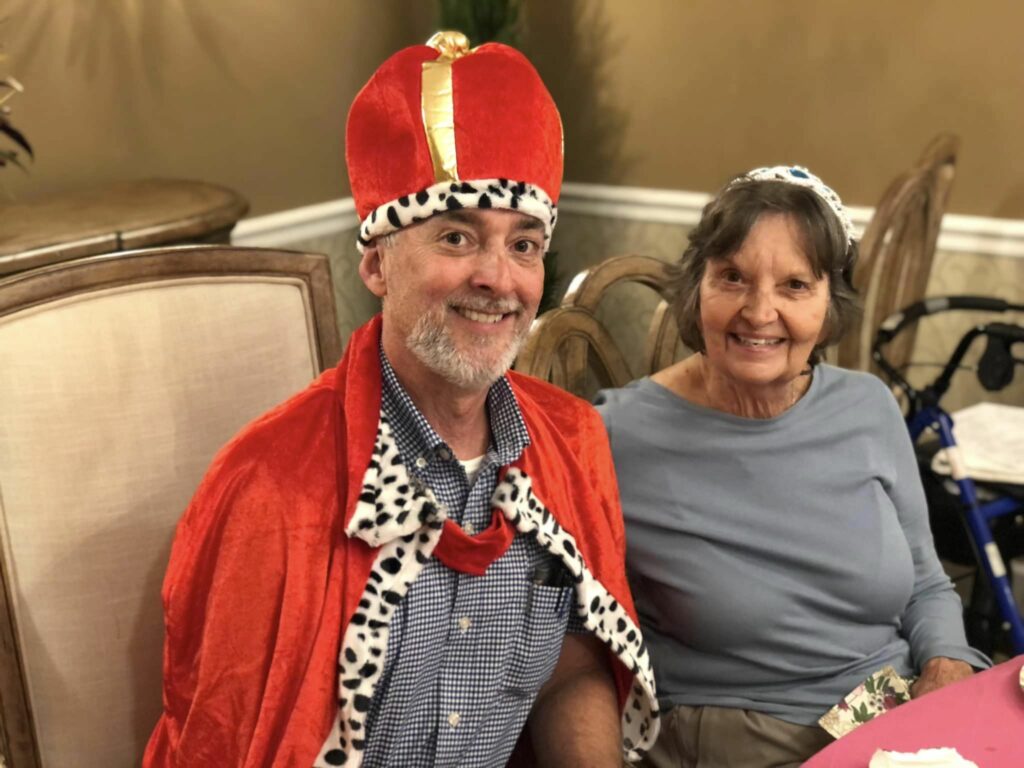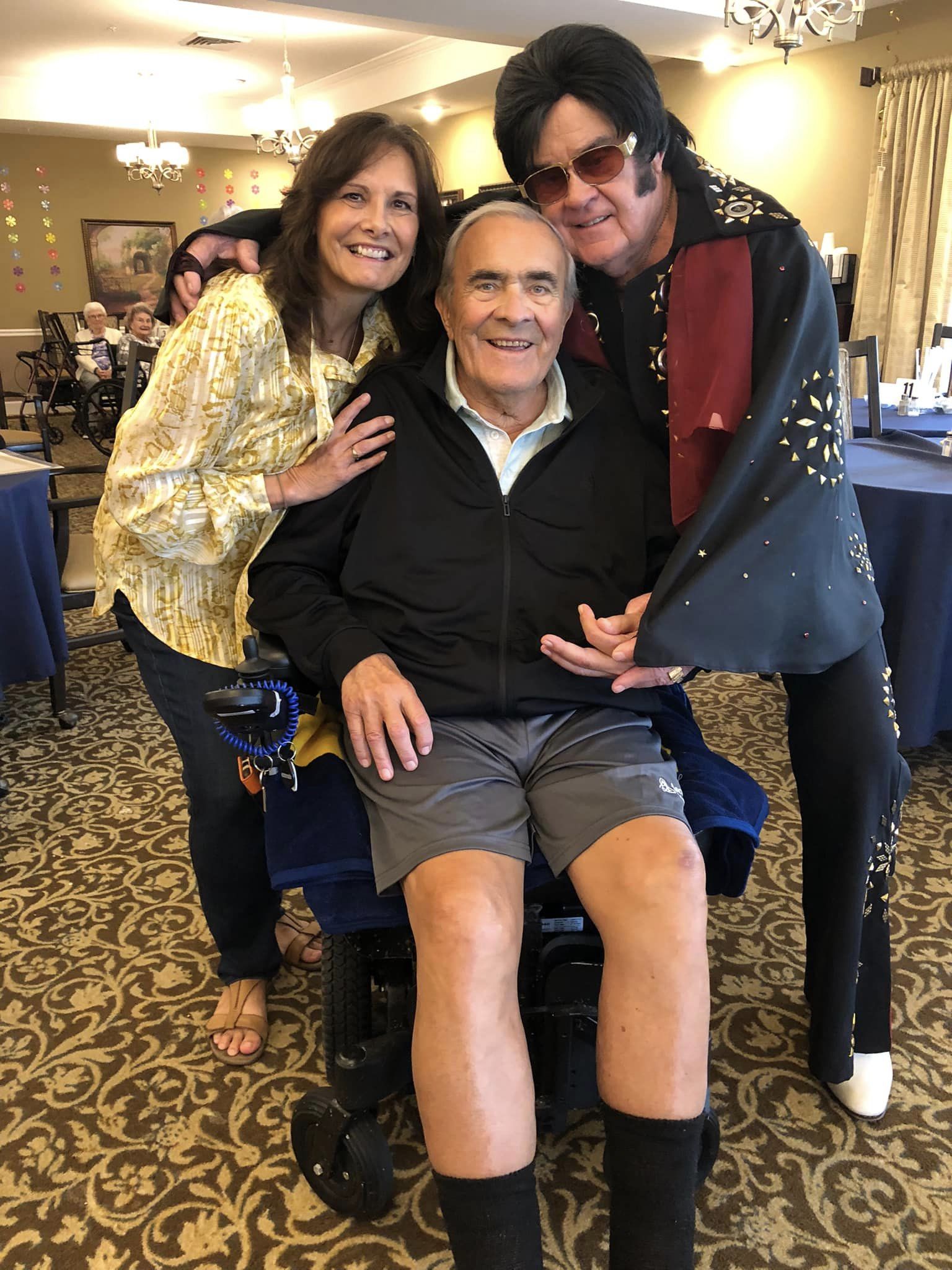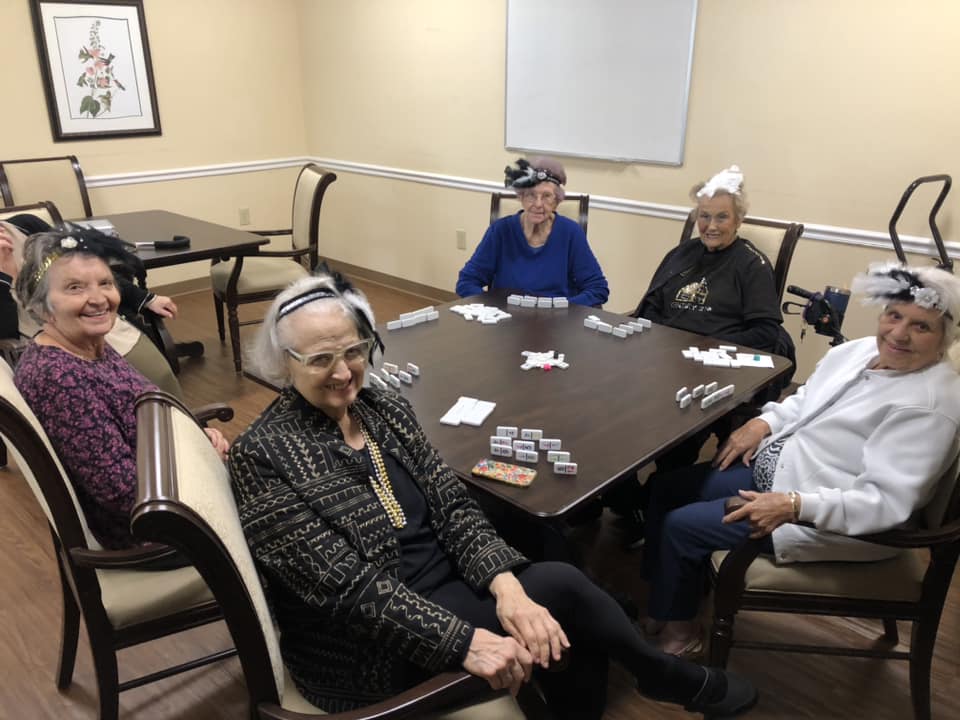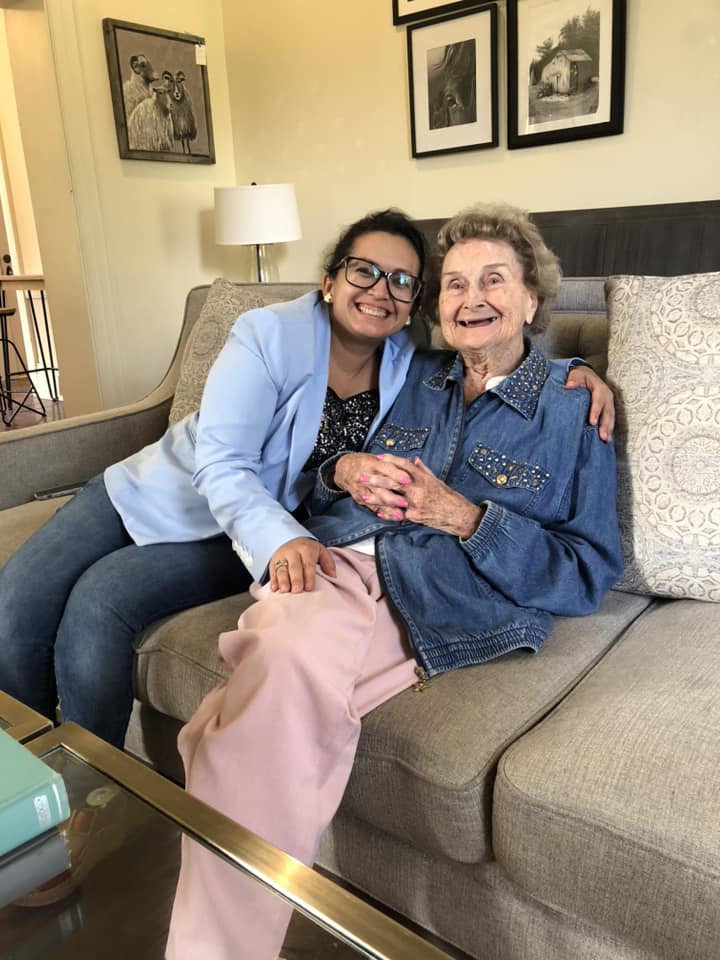Stepping into a new chapter at a senior living home isn’t just about crossing thresholds; it’s about orchestrating a symphony of compassion. Picture this: a heartfelt welcome not only as a gesture but as a cornerstone shaping emotional resilience, rapid adaptation, and a sturdy foundation of trust.

This initial embrace isn’t just a formality; it’s the opening melody that tunes the entire experience, painting a canvas of belonging and comfort for your loved one in their new abode.
Emotional Well-being: The transition to a senior care environment can be emotionally challenging for both the resident and their family. A warm, compassionate welcome can alleviate stress and anxiety associated with this significant life change.
Smoother Adaptation: A compassionate reception and an expedited arrival process allow for a quicker and smoother adjustment of the loved one to their new home. This helps establish a sense of belonging and comfort more rapidly.
Quality of Care: The initial care provided during arrival sets the tone for the overall quality of care. A compassionate welcome sets a high and reassuring standard for the level of attention the resident will receive.
Building Trust: A warm, compassionate reception helps build the resident’s and their family’s trust in the senior living community. This can foster stronger, collaborative relationships between the family and the facility’s staff.
Impact on Mental Health: A smoother arrival process coupled with compassionate care can positively impact the mental health of the resident. Feeling welcomed and supported contributes to a sense of security and well-being in their new environment.
Understanding Assisted Living and Memory Care
Assisted Living: Enhancing Daily Living
Imagine a life where the worries of health management and household chores fade into the background. At The Goldton at Spring Hill, assisted living embodies precisely that – a haven where residents can savor each day without the burden of logistical concerns. This level of care prioritizes independence while providing invaluable assistance when needed.
Assisted living services extend beyond mere healthcare; it’s a holistic approach. From ensuring proper nutrition to maintaining a tidy and comfortable home environment, our dedicated teams go the extra mile. The health care team and the maintenance and housekeeping staff collaborate seamlessly, embodying a commitment to ensuring residents experience not just care but a sense of belonging and well-being.
Memory Care: Nurturing Dignity Amidst Memory Challenges
Within our comprehensive memory care program at The Goldton at Spring Hill, we understand the unique challenges faced by individuals living with dementia. It’s more than care; it’s a sanctuary designed to provide solace and support, not just for the residents but for their families too.
Our specialized associates in dementia and Alzheimer’s care, available round-the-clock on-site, form the backbone of our memory care community. They skillfully supervise and engage residents, fostering an environment where every moment is cherished. Encouraging a fulfilling life through purposeful activities and companionship, our approach isn’t just about managing conditions but about empowering individuals to live joyfully and with dignity.
According to recent studies in the field of gerontology, the distinction between assisted living and memory care lies not just in the level of support but also in the specialized approach towards cognitive and physical challenges. Assisted living emphasizes maintaining independence with tailored assistance, while memory care provides an immersive environment focused on enhancing cognitive abilities and emotional well-being. This nuanced understanding helps families make informed decisions, aligning their loved ones’ needs with the most suitable care environment.
Preparing for the Transition
Assisted Living:
- Start Early: Initiate the downsizing process gradually to alleviate stress.
- Essential Items: Prioritize items crucial for comfort and familiarity in the new space.
- Organizational Aids: Utilize labeling and color-coded systems for efficient packing and unpacking.
- Involving the Senior:
- Decision-making Partnership: Encourage active participation in decisions about their new living space.
- Addressing Concerns: Create an open dialogue to discuss expectations, alleviating worries or uncertainties.
- Seeking Professional Help:
- Our Community’s Expertise: Our experts at The Goldton at Spring Hill are available to assist with the transition process.
- Counsel and Guidance: Professional help from our counselors is available to manage emotional aspects and logistical queries.
Memory Care:
- Creating a Familiar Environment:
- Personal Touches: Bring familiar items—photographs, cherished possessions—to create a comforting space.
- Customizing the Space: Arrange the room with familiar furniture or decorations to evoke a sense of home.
- Communication Strategies:
- Visual Aids: Implement visual cues or signs to aid orientation within the new environment.
- Consistency Matters: Maintain consistent communication patterns to reduce disorientation.
Emotional Preparation for Both:
- Open Dialogues and Orientation Visits:
- Family Discussions: Initiate open conversations about the move, addressing fears and expectations.
- Familiarization Visits: Plan visits to The Goldton at Spring Hill, gradually introducing the new environment.
- Professional Support and Community Assistance:
- Expert Assistance: Our community’s experts are ready to address inquiries or concerns during this transition.
- Support Networks: Consider joining support groups available within our community for shared experiences and guidance.
Additional Tips and Resources:
- Documentation and Transition Planning: Organize essential documents and collaborate with our team to create a personalized transition plan.
- Positive Outlook: Encourage a positive mindset and reinforce the idea that this transition brings new opportunities for enrichment and care.
- Ongoing Support: Our community and experts are committed to providing ongoing support and assistance to ensure a smooth and comfortable transition.
At The Goldton at Spring Hill, our team of experts is dedicated to facilitating seamless transitions. Our community welcomes all inquiries and uncertainties. Our professional help extends beyond the physical transition; we offer emotional support, guidance, and comprehensive assistance to ensure every resident’s well-being.


Streamlining the Arrival Process
Assisted Living:
- Documentation and Communication:
- Complete Paperwork Early: Gather and organize essential documents beforehand to expedite administrative processes.
- Open Communication: Establish contact with our staff to discuss any specific needs or concerns prior to arrival.
- Familiarization with the Facility:
- Virtual Tours or Information Packs: Utilize resources provided by The Goldton at Spring Hill to familiarize the senior with the community layout and amenities.
- Staff Introductions: Arrange initial meetings or introductions with key staff members to facilitate a smoother transition.
- Settling-In Support:
- Peer Introductions: Facilitate social connections by introducing the senior to fellow residents with similar interests or backgrounds.
- Orientation to Amenities: Provide a guided tour of facilities and communal spaces to ensure comfort and familiarity.
Memory Care:
- Personalized Arrival Strategies:
- Individualized Introductions: Our specialized staff at The Goldton at Spring Hill offers personalized introductions, understanding each resident’s unique needs and preferences.
- Memory-Focused Familiarization: Employ memory aids or cues to help residents navigate and feel more at home in their new surroundings.
- Handling Emotional Aspects:
- Family Involvement: Encourage family members to actively participate in the arrival process, providing emotional support and reassurance.
- Transition Support: Offer specialized emotional support services for both residents and their families to ease the emotional strain of the transition.
- Additional Considerations and Tips:
- Customized Routines: Collaborate with our staff to establish personalized routines that align with the resident’s preferences and needs.
- Professional Guidance: Seek guidance from our memory care experts to implement strategies that support cognitive stimulation and emotional well-being.
- Transition Support Programs: Explore the various programs and support initiatives available within our community to aid in a smoother arrival and transition.
Research suggests that a personalized and gradual approach to introducing seniors into assisted living or memory care environments significantly reduces stress and facilitates a more positive experience. Establishing familiarization with both the physical space and key personnel before arrival fosters a sense of belonging and eases the transition.
Compassionate Care and Support Services
Assisted Living:
- Personalized Care Services:
- Healthcare Support: Access to trained medical staff for regular health monitoring and assistance with medication management.
- Daily Living Assistance: Help with activities of daily living (ADLs) like bathing, dressing, and grooming based on individual needs.
- Emotional Support Programs:
- Counseling and Emotional Wellness: Offer emotional support programs, counseling sessions, or support groups to address mental health needs.
- Recreational and Social Activities: Encourage participation in group activities, hobby clubs, and outings to foster social connections and engagement.
- Family Engagement Initiatives:
- Family Participation: Encourage family involvement in activities or events within the community to maintain strong familial bonds.
- Family Support Groups: Facilitate forums or groups where families can share experiences and gain mutual support.
Memory Care:
- Specialized Cognitive Support:
- Memory Enhancement Programs: Offer cognitive stimulation programs designed to improve memory and cognitive functions.
- Tailored Therapeutic Activities: Implement specialized activities focusing on sensory stimulation and reminiscence therapy.
- Person-Centered Care:
Individualized Attention:
- Person-Centered Care:
Tailored Care Plans: Crafted specifically for each resident based on their unique needs, preferences, and cognitive abilities.
Personalized Engagement: Associates at The Goldton at Spring Hill engage residents in activities that resonate with their individual interests, fostering a sense of purpose and joy.
Emotional Validation and SPIRIT Program:
Empathetic Communication: Emphasize compassionate communication techniques that validate residents’ emotions, promoting a sense of security and comfort.
SPIRIT Memory Care Program: At The Goldton at Spring Hill, the SPIRIT program drives our signature memory care approach, focusing on individuality and vibrance among our residents.
SPIRIT Principles:
- Strengthening Minds: Engage residents in cognitive exercises and stimulating activities to enhance cognitive abilities and mental acuity.
- Purpose-Driven Approach: Design activities and engagements aligned with each resident’s sense of purpose and enjoyment.
- Identity Celebration: Celebrate each resident’s unique identity, fostering a sense of belonging and self-worth.
- Rediscovering Joy: Emphasize the celebration of small victories and moments of success, enhancing residents’ overall well-being.
- Tailored Programming: Create personalized programs for each resident, ensuring activities resonate with their preferences and abilities.
Associates’ Dedication:
- Commitment to Care: Our associates at The Goldton at Spring Hill are dedicated to caring for residents while infusing their service with love and compassion.
- Invigorating Daily Life: Through the SPIRIT program, our associates aim to invigorate and enrich the lives of residents every day, fostering a vibrant and engaging environment.
The SPIRIT Memory Care Program at The Goldton at Spring Hill embodies a holistic approach to memory care, emphasizing individuality, purpose, and joy. Its tailored programs and principles focus on celebrating each resident’s identity and creating a supportive, engaging, and nurturing environment.
- Family Education and Support:
- Caregiver Training: Offer educational sessions or workshops for families on understanding and coping with memory-related conditions.
- Ongoing Support Networks: Facilitate ongoing support groups or forums for families to share experiences and learn from one another.
Tips for Families:
- Active Engagement: Encourage families to actively participate in the residents’ daily routines and activities to provide emotional support.
- Regular Communication: Maintain open communication with staff to stay informed about the resident’s progress and well-being.
- Utilize Available Resources: Familiarize themselves with the various support services and programs offered within the community to maximize benefits for their loved ones.

Nurturing a Supportive Community
According to Dr. John Smith, specialist in aging and community well-being: “Active participation in the community is pivotal for the well-being of seniors in assisted living and memory care. Social interaction and collaborative activities not only enhance their quality of life but also have positive effects on their cognitive and emotional health.”
Dr. Emily Rodriguez, geriatric psychologist, adds: “Fostering a supportive community is crucial in counteracting social isolation. Engaging in group activities, events, and programs specifically designed for residents in assisted living and memory care helps reduce feelings of loneliness and promotes emotional connection.”
Fostering a Sense of Belonging:
- Resident Engagement:
- Encouraging Participation: Residents should be encouraged to join group activities, clubs, or volunteer initiatives within the community.
- Tailoring Activities: Customizing activities to align with residents’ interests and abilities ensures their motivation and active engagement.
- Family Involvement:
- Inclusive Events: Encouraging families to attend community events or workshops fosters unity and support.
- Regular Engagement: Consistent visits and active engagement with residents help maintain family bonds and provide emotional support.
- Community Initiatives:
- Diverse Activity Offerings: Providing a variety of activities such as art classes, gardening, fitness programs, or cultural outings caters to different interests.
- Facilitating Meaningful Connections: Encouraging residents and families to form friendships and support networks within the community enhances a sense of belonging.
Active participation in a supportive community is vital for the emotional and cognitive well-being of seniors in assisted living and memory care settings. Experts emphasize that involvement in group and social activities helps counteract feelings of isolation and fosters a sense of belonging and emotional connection, significantly contributing to an improved quality of life.
As we culminate our exploration into the realm of assisted living and memory care, one truth stands resolute: the essence of compassion and preparedness in facilitating a seamless transition. The fusion of compassion, tendering warmth and understanding, intermingles with the foresight of preparedness, crafting a supportive framework for residents and their families.
At The Goldton at Spring Hill, these values manifest not merely as principles but as the very cornerstone of our ethos. Our commitment to compassion extends beyond words, seeping into every aspect of our care. From personalized attention to specialized programs like the SPIRIT initiative within our memory care, each element is meticulously designed to foster a sense of belonging, purpose, and joy.








